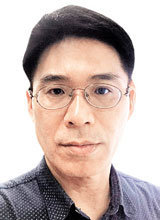It matters to stay balanced in calmness
It matters to stay balanced in calmness
Posted September. 05, 2022 07:54,
Updated September. 05, 2022 07:54


Beijing will hold the 20th National Congress of the Chinese Communist Party on Oct. 16. Once every five years, party leadership is newly elected for the following five years. What draws attention to this year’s congress is that it will likely end up being the coronation of Chinese President Xi Jinping who will serve three consecutive terms.
After Mao Zedong led the Chinese Communist Party from 1949 until he died in 1976, it set up a leadership system in name only to hand over power to multiple top members and replace the supreme leader for every 10 years. If this party principle is to be observed properly, President Xi will have to end his terms this year as he took office in 2013. However, it is expected to be ignored for the first time in 30 years or so.
A fait accompli has already been created that Xi will stay in power until 2027. Some even make a wild guess that he will maintain leadership for more years until 2032. The trickiest part of conventions is that it is hard to break them for the first time. Given that President Xi was born in 1953, even if he continues to lead the party by 2032, he will only be 79 years old, even one year younger than U.S. President Joe Biden of today. All circumstances at home and abroad also make things conducive to the powerful leader staying in power for the longer term amid the escalating tension between Beijing and Washington, Russia’s invasion into Ukraine and the ongoing Taiwan issue. Added to this, he will likely receive a new title of “the people’s leader” going beyond his incumbent position, making it easy for him to wield power somehow even after he ends his fourth term.
Following the commemorative ceremony of the 30th anniversary of the diplomatic relations between South Korean and China, the Embassy of the Republic of Korea in China seems relieved to believe that the THAAD issue is settled for the time being. However, this issue is only temporarily mended unless the two governments explicitly reach agreement. China can bring up the THAAD issue anytime.
In response to the Chinese government that will become a more reclusive and closed system, South Korea is supposed to make every part of its diplomatic decision-making clear and transparent. Every diplomatic decision should be made based on national interests with more transparency provided. If the South Korean government follows in the footsteps of an authoritarian and covert regime of China handling issues behind the scenes, another real stab in the back will await it. It needs to communicate with the public more often and transparently. When South Korean Ambassador Chung Jae-ho to China previously worked as a scholar, he claimed that any diplomatic dialogue behind the scenes between Seoul and Beijing should be put to an end. The current administration should make sure that his words are put into action.







